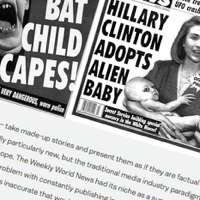Rascals case in brief
In the beginning, in 1989, more than 90 children at the Little Rascals Day Care Center in Edenton, North Carolina, accused a total of 20 adults with 429 instances of sexual abuse over a three-year period. It may have all begun with one parent’s complaint about punishment given her child.
Among the alleged perpetrators: the sheriff and mayor. But prosecutors would charge only Robin Byrum, Darlene Harris, Elizabeth “Betsy” Kelly, Robert “Bob” Kelly, Willard Scott Privott, Shelley Stone and Dawn Wilson – the Edenton 7.
Along with sodomy and beatings, allegations included a baby killed with a handgun, a child being hung upside down from a tree and being set on fire and countless other fantastic incidents involving spaceships, hot air balloons, pirate ships and trained sharks.
By the time prosecutors dropped the last charges in 1997, Little Rascals had become North Carolina’s longest and most costly criminal trial. Prosecutors kept defendants jailed in hopes at least one would turn against their supposed co-conspirators. Remarkably, none did. Another shameful record: Five defendants had to wait longer to face their accusers in court than anyone else in North Carolina history.
Between 1991 and 1997, Ofra Bikel produced three extraordinary episodes on the Little Rascals case for the PBS series “Frontline.” Although “Innocence Lost” did not deter prosecutors, it exposed their tactics and fostered nationwide skepticism and dismay.
With each passing year, the absurdity of the Little Rascals charges has become more obvious. But no admission of error has ever come from prosecutors, police, interviewers or parents. This site is devoted to the issues raised by this case.
On Facebook
Click for earlier Facebook posts archived on this site
Click to go to
Today’s random selection from the Little Rascals Day Care archives….
Click for earlier Facebook posts archived on this site
Click to go to
Today’s random selection from the Little Rascals Day Care archives….
N.C. justices to Junior Chandler: Drop dead
 Oct. 5, 2012
Oct. 5, 2012
Because today’s North Carolina Supreme Court decision on Junior Chandler’s appeal comprised three separate parts, I didn’t fully comprehend it.
“Is this good news or bad?” I emailed Mark Montgomery, Junior’s appellate lawyer.
“The worst,” he replied. “We’re out of court.”
Yes, this is the worst – the absolute, inexcusable, shameful worst.
The justices have denied Junior Chandler, probably the last still-imprisoned victim of the multiple-offender, multiple-victim ritual-abuse day-care panic, his final chance for a new trial. After 25 years behind bars – more than all the Little Rascals defendants combined! – he faces only more of the same.
If I were a lawyer, maybe I could understand how the North Carolina Supreme Court arrived at its decision.
How it was unmoved by Junior’s feeble representation early on.
How it was uninterested in the epochal progress made in limiting expert testimony.
How it was all too eager to find petty justifications for validating a prosecution rotten at the core.
But probably not.
Fake news and ‘satanic ritual abuse’: Best friends forever!

vox.com
Covers from the Weekly World News.
Dec. 15, 2016
You probably haven’t been asking Google to provide you with daily news alerts about “satanic ritual abuse,” but if you had , the popularity of fake news would come as no surprise.
Decades of debunking may have squelched the wrongful prosecutions of day-care providers, but beneath the surface… well, these headlines sprang from just one day’s news feed:
-
Ritual Abuse is Real: Cover-up of Child Sexual and Ritual Abuse
-
Cover-up of the Century: Satanic Ritual Abuse and World Conspiracy
-
Ritual Abuse: What It Is, Why It Happens, And How To Help
-
Breaking the Circle of Satanic Ritual Abuse
-
Child Trafficking/Illuminati-Freemason Ritual Abuse
![]()
Disapproval of prosecutors ‘about to hit a tipping point’

facebook.com
Juleyka Lantigua-Williams
May 31, 2016
“A consensus is building around the need to seriously rethink the role of the prosecutor in the administration of justice. Power dynamics are unbalanced, sentencing guidelines are outdated, and old-fashioned human biases persist. And prosecutors – singularly independent agents in a justice system roiling in turmoil – have been facing growing criticism and public distrust for some time, and that disapproval is about to hit a tipping point.
“It’s time to curtail the power long held by these officers of the court as they promote justice, ensure fairness, and enhance public safety.”
– From “Are Prosecutors the Key to Justice Reform?” by Juleyka Lantigua-Williams in the Atlantic (May 18)
Is the North Carolina Bar ready to take the first step toward holding prosecutors accountable?
![]()
‘They saw themselves as the good guys….’
May 21, 2012
Lee Coleman, a Berkeley, Calif., psychiatrist and co-author of “Has a Child Been Molested?” (2000), served as a consultant to the Little Rascals defense.
“When I examined the terrible interviewing methods,” he recalls, “it quickly became obvious that (Little Rascals) was like the McMartin and Kelly Michaels cases: a complete fabrication.”
How does Dr. Coleman account for therapists’ and prosecutors’ “unwillingness to see what was in front of their faces”?
“[(McMartin therapist) Kee MacFarlane became a national figure by claiming to know how to talk to kids to help them describe abuse. There followed a cadre of young, bushy-tailed professionals who saw themselves as the good guys of a movement. They were glamorous and self-righteous, and they had nothing left to think with. What if a child hadn’t been molested? They never thought about it….
“Then they led meetings across the country, where they taught their system to others, who applied it locally…”
Dr. Coleman’s characterization captures precisely the origin of the Little Rascals allegations, in which a seminar led by “sex rings” alarmist Ann Burgess attracted prosecutor H.P. Williams, therapist Judy Abbott and police dispatcher Brenda Toppin.











0 CommentsComment on Facebook